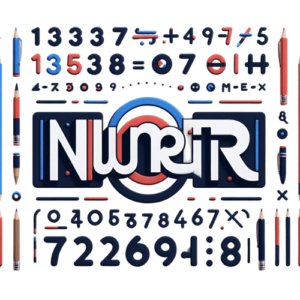
In the digital age, every business and entity that wants to connect to the internet requires an IP address. As the internet has expanded exponentially, the importance of IP addresses, particularly IPv4, has increased significantly. Despite the availability of IPv6, many organizations still rely heavily on IPv4 addresses due to compatibility and operational reasons. This reliance has created a substantial market, where IPv4 holdings are now considered a valuable asset. In this article, we will explore how IPv4 addresses have become a hidden treasure, unlocking financial and strategic value for businesses and individuals alike.
The Growing Demand for IPv4 Addresses
Although IPv6 was introduced as a long-term solution to the exhaustion of IPv4 addresses, adoption has been slow. Many companies, particularly those with older infrastructure, continue to use IPv4 due to its widespread compatibility with devices and software. As a result, the demand for IPv4 addresses has surged while the available supply has decreased, driving up their value.
The scarcity of IPv4 addresses is primarily due to the finite nature of the IPv4 system, which is limited to approximately 4.3 billion addresses. Given the global scale of internet usage, this supply was quickly depleted. Now, businesses that own unused or underutilized IPv4 addresses find themselves sitting on a highly valuable resource, creating new opportunities for monetization.
Monetizing IPv4 Holdings
The process of monetizing IPv4 addresses can take several forms, with the most common being the sale or lease of these addresses. Organizations that no longer need all of their IPv4 addresses can sell or lease them to companies in need of additional resources. This has become a lucrative business for many, especially in industries like cloud computing, telecommunications, and IT infrastructure.
Selling IPv4 Addresses
Selling IPv4 addresses can generate significant revenue. Depending on market conditions, the price of a single IPv4 address can range from $20 to $60 or more. For companies holding large blocks of IP addresses, this can lead to millions in revenue. The IPv4 transfer market has become highly organized, with brokers facilitating transactions between buyers and sellers, ensuring a smooth and legal process.
Leasing IPv4 Addresses
For those who want to retain ownership of their IPv4 holdings but still unlock their value, leasing is another option. Leasing allows companies to rent out their unused IP addresses, providing them with a steady stream of income without relinquishing control. This is especially attractive to businesses that may anticipate needing these addresses in the future but want to capitalize on their value in the meantime.
Strategic Value Beyond Financial Gain
While the financial benefits of IPv4 monetization are clear, there are also strategic advantages. Organizations that hold IPv4 addresses can use them as leverage in partnerships, mergers, or acquisitions. The possession of a significant number of IPv4 addresses can enhance a company’s appeal to potential buyers or investors, especially in industries that are heavily reliant on internet connectivity.
Moreover, businesses can use their IPv4 holdings to support expansion plans, ensuring that they have the necessary resources to scale their operations without worrying about future IP shortages. This is particularly important for companies in regions where IPv6 adoption has been slower and IPv4 addresses remain the standard for most internet services.
Legal and Regulatory Considerations
While the IPv4 transfer market is thriving, it is essential for businesses to navigate it carefully. The sale or lease of IP addresses must comply with the rules set by regional internet registries (RIRs), such as ARIN (American Registry for Internet Numbers), RIPE NCC (Réseaux IP Européens Network Coordination Centre), and APNIC (Asia-Pacific Network Information Centre). These organizations oversee the allocation and transfer of IP addresses to ensure fairness and prevent fraud.
Working with an experienced broker or legal advisor is crucial to ensure that all transactions meet regulatory requirements and that the transfer process is smooth. Additionally, organizations must be aware of tax implications when monetizing IPv4 holdings, as the sale or lease of IP addresses may be subject to taxation in some jurisdictions.
The Future of IPv4 and IPv6
Although IPv6 is expected to become the dominant internet protocol in the long term, the transition has been slower than anticipated. As a result, the demand for IPv4 addresses is likely to remain strong for the foreseeable future. This means that businesses with IPv4 holdings can continue to capitalize on their value, whether through sales, leases, or strategic deployment.
However, companies should also be preparing for the eventual shift to IPv6. This may involve upgrading infrastructure, ensuring compatibility with IPv6, and developing a strategy for gradually phasing out IPv4 addresses. Organizations that successfully manage this transition will be well-positioned to navigate the evolving landscape of internet connectivity while still leveraging the value of their IPv4 assets.
Conclusion: A Golden Opportunity
IPv4 addresses are more than just a technical necessity; they have become a valuable asset in today’s internet-driven world. For businesses and individuals holding unused or underutilized IPv4 addresses, this represents a golden opportunity to unlock hidden value. Whether through direct sales, leasing, or strategic deployment, IPv4 holdings offer significant financial and operational benefits.
As the demand for internet resources continues to grow and the world slowly transitions to IPv6, organizations with IPv4 assets have a unique advantage. By monetizing their holdings, they can generate new revenue streams and position themselves for success in the digital economy.



